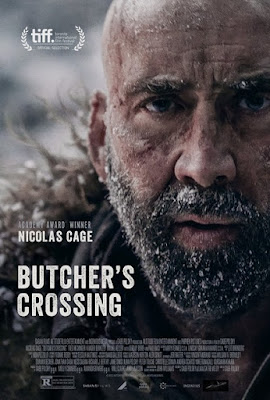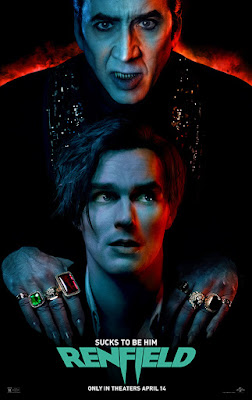You
have to give Marvel credit for not playing it safe with their first theatrical
animated feature. For starters, they revisit the “Ultimate Marvel” continuity
universe that they essentially put on indefinite hiatus in 2015. It also prominently
features Peter Porker, the Spectacular Spider-Ham (he’s a pig, get it?), whom Time magazine dubbed one of the “Ten
Oddest Marvel Characters,” not without justification. Yet, all the unlikely
elements combine into a rather inspired whole: Bob Persichetti, Peter Ramsey,
and Rodney Rothman’s Spider-Man: Into the
Spider-Verse (trailer
here),
which opens this Friday nationwide.
Miles
Morales is a bright prep school scholarship kid from Brooklyn, who is pushed
hard by his police officer father. Most of the time, he feels like his black
sheep Uncle Aaron understands him better, especially when it comes to his
passion for graffiti art. Then one day, he is bitten by a radioactive spider.
You know how that works. In fact, screenwriter Phil Lord frequently revisits
that familiar origin story throughout Spider-Verse,
for sly comedic effect.
Young
Morales has trouble mastering his new powers, but he soon comes mask-to-mask
with a potential tutor. That would be Peter Parker, the Spectacular Spider-Man.
Thanks to a rift in the multiverse caused by the recklessness of Wilson Fisk (a.k.a.
The Kingpin), several more alternate Spider-Beings cross over. Most of Morales’
lessons will come from Peter B. Parker, who is a lot like the Parker we know,
but slightly schlubbier. He is not perfect, but the black-and-white, tough-talking
Spider-Man Noir is not exactly the mentoring type and it would be embarrassing to
get schooled by Spider-Ham.
It
is usually a bad sign when comic book companies resort to reboots and alternate
continuities, but Marvel has repurposed the Ultimate experiment quite shrewdly.
Waste not, want not. Visually, Spider-Verse
is a trip and a half, incorporating elements of the entire history of comic
books, including manga—as represented by Peni Parker—all of which is rendered in
a unique style of CGI animation, with traditional hand-drawn elements layered
on-top.
Spider-Verse looks terrific,
but what really distinguishes the film is the quality of the writing. Morales and
his family are all fully developed characters, who have very real issues to
deal with. Morales also has a smartly developed relationship with an alternate
Gwen Stacy, a.k.a. Spider-Woman, a.k.a. Spider-Gwen (not to be confused with
the deceased and resurrected Jessica Drew Spider-Woman). Frankly, there are
some shockingly poignant moments in Spider-Verse,
especially for viewers who are or ever have been Marvel fans.
Marvel
really tempted the fates by enlisting Nic Cage, who nearly played Superman in
Tim Burton’s never-realized Superman
Lives, to give voice to Spider-Man Noir, but once again their gamble paid
off with some fantastic hardboiled voice-over work. The rest of the voice cast
is quite strong as well, particularly Hailee Steinfeld as Spider-Woman and
Brian Tyree Henry as Morales’ father, Jefferson Davis (is that irony
intentional?).
Regardless, all superhero movies should be as
well-written as Spider-Verse. The
animators produced some striking cityscapes and a truly dynamic sense of motion.
Watching their work recaptures the feeling of seeing the first two Sam Raimi
live-action Spider-Man movies and being blown away by how good the web-slinging
looked. Even if you love GKIDS and Studio Ghibli, you will be impressed by what
the filmmakers have done here. Very highly recommended, Spider-Man: Into the Spider-Verse opens this Friday (12/14) across
the country, including the AMC Empire in New York.




























